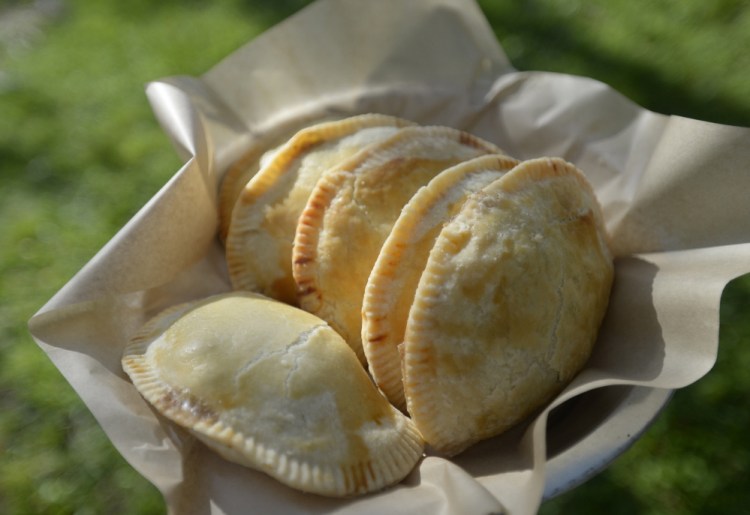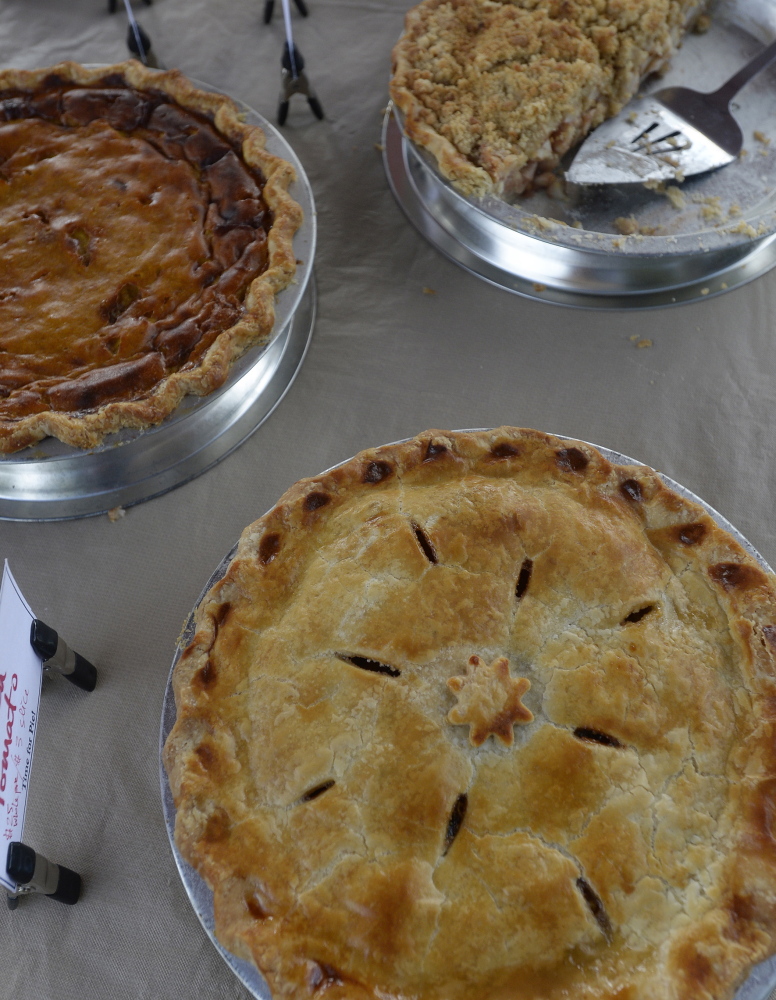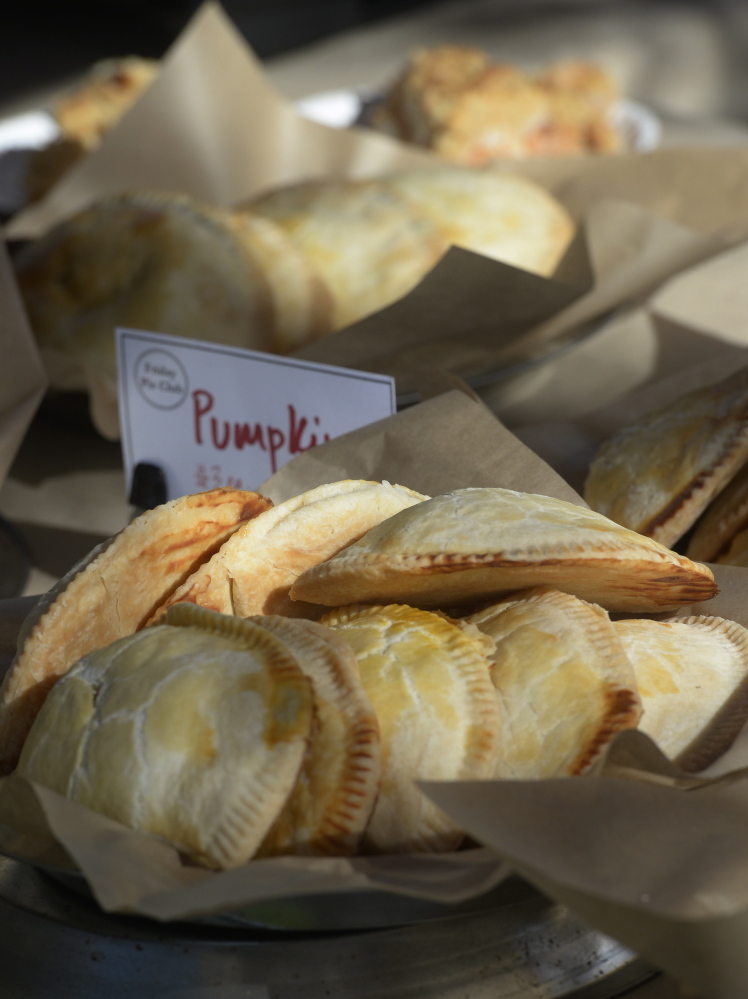I’d argue that if you want to eat pork sustainably, you should also eat lard, or pig fat. Over the years, though, that argument has been a tough sell.
In “The Jungle,” Upton Sinclair painted a picture of Chicago slaughterhouse workers falling undetected into vats of rendering lard. Then Crisco marketed its downy white lab fat at the expense of real lard, and health concerns over saturated fats made would-be lard eaters anxious. If that’s not enough, disgust-invoking insults involving the word “lard” are plentiful.
Still for me, the basic tenet holds: The fat from a pig is part and parcel of the animal and, therefore, should not be wasted.
That’s why I was especially pleased to discover Friday Pie Club owners Meghan Fennell and Charles Fischman, who make sweet and savory pies with all-lard crusts to order from a kitchen space they lease in Yarmouth. On Mondays, they announce that week’s flavors, which are inspired by ingredients they source from area farmers markets. Depending on where customers live, the baked pies – whole pies or turnovers – can be delivered to their door or picked up at farmers markets.
Fennell and Fischman buy local (and organic, whenever possible) leaf fat – the highest grade of pork fat – directly from farmers and meat processors, including Farmers’ Gate Market in Wales, L&P Bisson and Sons Meat Market in Topsham and Weston’s Meat Market in Gardiner. Fischman renders the lard himself, a four-hour process during which the chopped fat slowly melts.
He says it has a general umami flavor rather than tasting specifically of pork, adding that its taste can vary subtly depending on what the pigs ate. Many pie bakers – Fischman and Fennell included – say lard makes the flakiest and tastiest pie dough. “It’s the kind of fat that New England pies used to be made from,” Fennell said.
For next week’s pie list, write to fridaypieclub@gmail.com.
PASTITSIO TURNOVERS
Friday Pie Club owners Meghan Fennell and Charles Fischman got the idea for these turnovers while walking through the late summer farmers markets chock-full of eggplant and tomatoes, two of the main ingredients in pastitsio, a layered Greek casserole. They declined to give their pie crust recipe, since they rely on it for their business. Use your own pie crust recipe, preferably one with lard.
Makes 6 to 8 turnovers.
1 recipe (two-crust) pie dough
1 teaspoon olive oil
½ cup chopped onion
½ pound ground beef or lamb
1 cup chopped heirloom tomato
Salt and pepper to taste
⅛ teaspoon ground cinnamon
1 small eggplant, diced (about 1½ cups)
2 tablespoons butter
1½ tablespoons all-purpose flour
1 cup hot milk
½ cup shredded Parmesan cheese
Roll out dough on a lightly floured counter to ⅛-inch thickness. Cut into six to eight 5-inch circles. Set aside.
Heat the oil in a large skillet over medium high. When it shimmers, add the onions and sauté until soft, about 5 minutes. Add the ground meat and cook until browned, about 5 minutes. Add the tomatoes. Cook the mixture until the tomatoes have rendered their juices and the liquid has evaporated. Add salt, pepper and cinnamon. Stir in the eggplant, reduce heat to low and cook until the eggplant is soft, 5-8 minutes. Set aside.
To make a roux, melt butter in a medium saucepan over low heat. When butter foams, whisk in flour. Cook for 1 minute (it will form a paste). Whisk in the milk and stir constantly until sauce thickens, 3-5 minutes. Slowly add the cheese while whisking, until sauce is smooth. Season with salt and pepper.
Gently combine the cheese sauce and the eggplant filling. Cool.
Preheat the oven to 350 degrees F.
Spoon ¼ cup of cooled filling into the center of each dough circle. Fold the dough over on itself to form half circles. Use a fork to seal and crimp edges. Bake until the turnovers are golden brown, 18-20 minutes.
Send questions/comments to the editors.




